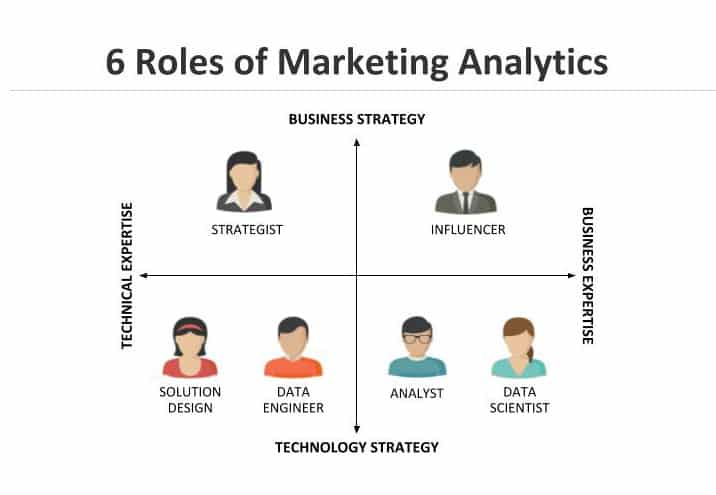In today’s rapidly evolving digital landscape, data analytics has become an indispensable tool for marketers seeking to gain a competitive edge. By harnessing the power of data, marketers can unlock valuable insights about their target audience, make informed decisions, and create highly personalized marketing campaigns. From understanding customer behavior and preferences to optimizing advertising strategies, data analytics plays a pivotal role in driving marketing success. In this article, we explore the fascinating world of data analytics and how it is revolutionizing the way businesses approach marketing.
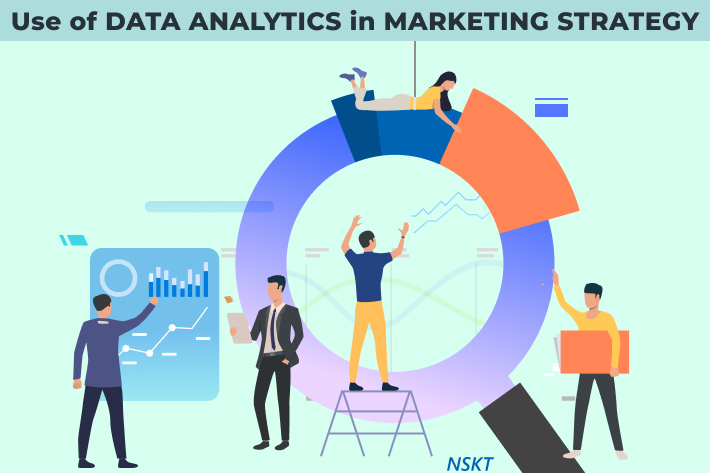
The Importance of Data Analytics in Marketing
In today’s digital age, data analytics plays a crucial role in the field of marketing. It allows businesses to gain valuable insights into customer behavior, identify their target audience, improve marketing campaigns, optimize budgets, and enhance the overall customer experience. By harnessing the power of data analytics, companies can make more informed decisions, drive business growth, and stay ahead of their competitors.
Understanding Customer Behavior
One of the key roles of data analytics in marketing is to understand customer behavior. By collecting and analyzing data from various sources, businesses can gain insights into customer preferences, buying habits, and trends. This knowledge enables marketers to tailor their strategies and campaigns to meet the specific needs and desires of their target audience. Understanding customer behavior also helps businesses identify opportunities for innovation and growth.
Identifying Target Audience
Data analytics helps marketers identify their target audience more accurately. By analyzing data from sources such as customer demographics, online behavior, and purchase history, businesses can create detailed customer profiles. These profiles help marketers understand who their ideal customers are, what motivates them, and how they can best reach and engage with them. This knowledge allows companies to personalize their marketing efforts and increase the likelihood of attracting and retaining loyal customers.
Improving Marketing Campaigns
Data analytics is instrumental in improving marketing campaigns. By tracking and analyzing the performance of different marketing initiatives, businesses can evaluate which strategies are effective and which ones need to be adjusted. A/B testing and experimentation enable marketers to compare different versions of their campaigns and determine which elements resonate with their target audience. This iterative approach to marketing allows businesses to optimize their messaging, creative assets, and overall campaign performance.
Optimizing Marketing Budget
Data analytics helps businesses optimize their marketing budgets by identifying cost-effective marketing channels and measuring the return on investment (ROI) of various initiatives. By analyzing the performance of different campaigns and channels, companies can allocate their resources more efficiently and eliminate wasteful spending. This not only maximizes the impact of marketing efforts but also ensures that budgets are aligned with business goals and objectives.
Enhancing Customer Experience
Data analytics plays a crucial role in enhancing the overall customer experience. By analyzing customer data, businesses can gain insights into their preferences, needs, and behaviors. This knowledge enables marketers to deliver personalized marketing messages, recommendations, and offers tailored to individual customers. By providing a personalized and relevant experience, businesses can strengthen customer loyalty and satisfaction, ultimately leading to increased retention and advocacy.
Data Collection and Analysis
To harness the power of data analytics in marketing, it is essential to collect, clean, and analyze data effectively. This section highlights the key steps involved in data collection and analysis.
Collection of Data from Multiple Sources
In order to gain a comprehensive understanding of customer behavior and preferences, data must be collected from multiple sources. This includes sources such as customer databases, website analytics, social media platforms, CRM systems, and third-party data providers. By aggregating and integrating data from these sources, businesses can create a holistic view of their customers and make more informed decisions.
Data Cleaning and Preparation
Once data is collected, it is important to clean and prepare it for analysis. This involves removing duplicate or irrelevant data, correcting any errors or inconsistencies, and transforming data into a format suitable for analysis. Data cleaning ensures that the insights derived from analysis are accurate and reliable, leading to more effective marketing strategies.
Data Analysis and Interpretation
After data cleaning, the next step is to analyze and interpret the data. This is where data analytics tools and techniques come into play. Descriptive analytics involves summarizing and visualizing the data to gain insights into patterns, trends, and correlations. Diagnostic analytics helps to uncover the reasons behind these patterns and trends. Predictive analytics uses historical data to make predictions about future behavior, while prescriptive analytics suggests actionable strategies and recommendations based on the insights gained from analysis.
Types of Data Analytics in Marketing
Data analytics in marketing can be categorized into four main types: descriptive analytics, diagnostic analytics, predictive analytics, and prescriptive analytics. Each type serves a different purpose and provides unique insights.
Descriptive Analytics
Descriptive analytics provides a summary of past data and helps to answer questions such as “What happened?” and “What is the current state of affairs?”. It involves visualizing data and identifying trends, patterns, and correlations. Descriptive analytics is useful in understanding historical marketing performance and gaining insights into customer behavior.
Diagnostic Analytics
Diagnostic analytics helps to understand the reasons behind the patterns and trends identified in descriptive analytics. It answers questions such as “Why did this happen?” and “What are the factors influencing this behavior?”. Diagnostic analytics is valuable in identifying the root causes of marketing successes or failures and guiding the development of effective strategies and campaigns.
Predictive Analytics
Predictive analytics uses historical data to make predictions about future behavior. It involves analyzing patterns and trends to forecast potential outcomes. Predictive analytics helps marketers anticipate customer needs, identify potential opportunities, and make data-driven decisions. By leveraging predictive analytics, businesses can proactively address customer preferences and stay ahead of the competition.
Prescriptive Analytics
Prescriptive analytics goes a step further than predictive analytics by providing actionable recommendations and strategies. It helps answer questions such as “What should we do?” and “How can we achieve the desired outcome?”. Prescriptive analytics uses advanced algorithms and modeling techniques to suggest the most optimal course of action based on the insights derived from data analysis. It guides marketers in making data-driven decisions and maximizing the effectiveness of their strategies.
Role of Data Analytics in Customer Behavior Analysis
Understanding customer behavior is essential for effective marketing strategies. Data analytics plays a vital role in acquiring, analyzing, and utilizing customer data to gain insights into their behavior.
Acquiring and Analyzing Customer Data
To understand customer behavior, businesses need to collect and analyze relevant data. This includes data such as purchase history, online behavior, demographics, and social media engagement. Tools such as customer relationship management (CRM) systems, marketing automation platforms, and data analytics software can assist in gathering and analyzing this data. By acquiring and analyzing customer data, businesses can gain valuable insights into their preferences, motivations, and purchasing patterns.
Segmenting and Profiling Customers
Data analytics helps businesses segment their customers based on various attributes such as demographics, behavioral patterns, and preferences. By dividing the customer base into distinct segments, marketers can develop targeted marketing strategies and campaigns tailored to each segment’s needs and preferences. Customer profiling involves creating detailed profiles for each segment, including information such as age, gender, income level, lifestyle, and interests. This information helps marketers personalize their messaging and offerings, increasing the likelihood of engagement and conversion.
Understanding Customer Lifetime Value
Customer lifetime value (CLV) is a key metric in marketing, as it represents the total economic value a customer brings to a business over their lifetime. Data analytics enables businesses to calculate and analyze CLV by considering factors such as customer acquisition cost, customer retention rate, and average purchase value. By understanding CLV, marketers can allocate resources more effectively, prioritize customer segments, and focus on strategies that maximize long-term profitability.
Personalizing Customer Experience
Data analytics enables businesses to deliver personalized marketing experiences to their customers. By leveraging customer data, businesses can understand individual preferences, interests, and behavior patterns. This allows marketers to tailor messaging, offers, and recommendations to each customer, creating a more personalized and relevant experience. Personalization not only enhances customer satisfaction but also increases the likelihood of repeat purchases and brand loyalty.
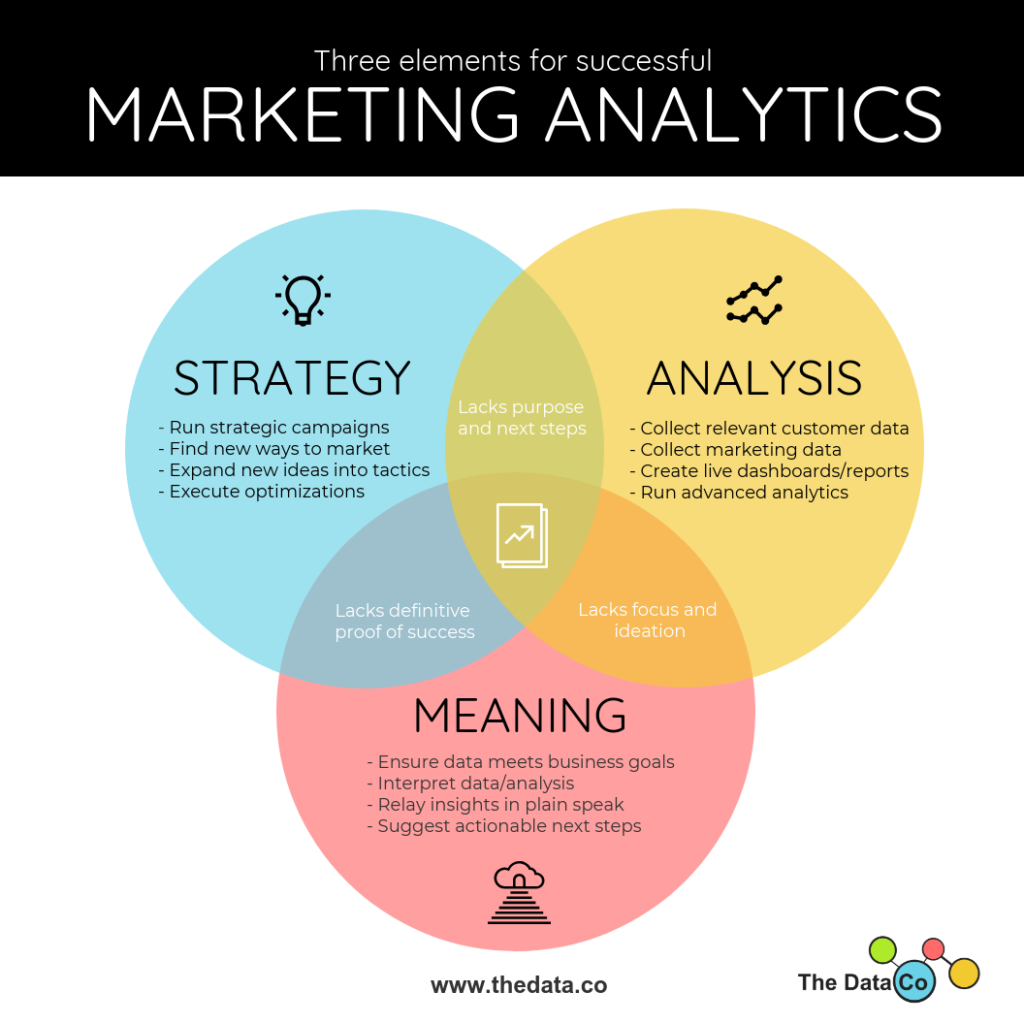
Role of Data Analytics in Identifying Target Audience
Identifying the target audience is crucial for effective marketing strategies. Data analytics plays a key role in this process by providing insights into customer behavior and preferences.
Determining Ideal Customer Profiles
Data analytics helps businesses determine their ideal customer profiles. This involves analyzing customer data to identify common attributes and characteristics among the most valuable and loyal customers. By understanding who their ideal customers are, businesses can develop targeted marketing strategies to attract and retain similar customers.
Customer Segmentation
Segmenting customers based on various attributes is another important role of data analytics. By dividing the customer base into distinct segments, businesses can develop tailored marketing strategies for each segment. Data analytics allows marketers to analyze customer demographics, purchasing patterns, and behavior to uncover meaningful segmentations. By understanding the preferences and characteristics of different customer segments, businesses can create more effective marketing messages and initiatives.
Market Research and Competitive Analysis
Data analytics helps businesses conduct market research and competitive analysis. By analyzing market trends, customer preferences, and competitors’ strategies, businesses can gain insights into current market conditions and identify opportunities for growth. This knowledge allows marketers to make informed decisions regarding marketing strategies, pricing, and product development.
Identifying Customer Needs and Preferences
Data analytics helps businesses understand customer needs and preferences. By analyzing customer data, businesses can identify patterns and trends that indicate what customers want and value. This information enables marketers to create products, services, and experiences that meet customer expectations and desires. By aligning marketing efforts with customer needs, businesses can increase customer satisfaction and loyalty.
Role of Data Analytics in Improving Marketing Campaigns
Improving marketing campaigns is crucial for achieving desired results. Data analytics plays a vital role in measuring campaign effectiveness and optimizing strategies.
Measuring and Evaluating Marketing Campaign Effectiveness
Data analytics allows businesses to measure and evaluate the effectiveness of their marketing campaigns. By tracking key metrics such as campaign reach, engagement, conversion rates, and return on investment (ROI), marketers can assess the impact of their initiatives. This knowledge helps businesses identify successful campaigns, understand what worked and what didn’t, and make data-driven decisions for future campaigns.
A/B Testing and Experimentation
Data analytics facilitates A/B testing and experimentation. By comparing different versions of marketing campaigns, businesses can determine which elements resonate with their target audience. A/B testing involves splitting the target audience into two groups and exposing each group to a different version of the campaign. By analyzing the performance of each version, businesses can identify the most effective elements and optimize their strategies accordingly.
Attribution Modeling
Data analytics helps businesses understand the contribution of different marketing channels and touchpoints in the customer journey. Attribution modeling involves assigning credit to various marketing efforts based on their influence on customer behavior. This knowledge allows businesses to allocate resources more effectively and focus on the channels and touchpoints that drive the highest ROI.
Optimizing Marketing Messaging and Creative Assets
Data analytics enables businesses to optimize their marketing messaging and creative assets. By analyzing customer engagement with different messages, images, and videos, businesses can identify the most effective content. This knowledge helps marketers create more compelling and relevant messaging that resonates with their target audience, increasing the likelihood of engagement and conversion.
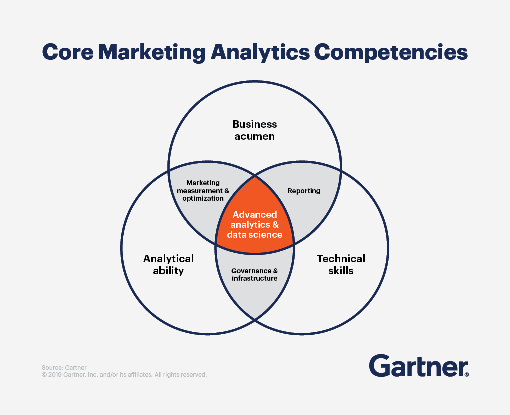
Role of Data Analytics in Optimizing Marketing Budget
Optimizing marketing budgets is essential for maximizing the impact of marketing efforts. Data analytics helps businesses allocate resources effectively and measure the return on investment (ROI) of different marketing channels and initiatives.
Budget Allocation and Resource Optimization
Data analytics enables businesses to allocate their marketing budgets more effectively. By analyzing the performance of different marketing channels, businesses can identify the ones that generate the highest ROI and allocate more resources to them. Conversely, underperforming channels can be deprioritized or eliminated, saving costs. This knowledge helps businesses optimize their marketing budgets and focus on strategies that deliver the best results.
Marketing ROI Analysis
Data analytics allows businesses to measure the return on investment (ROI) of their marketing initiatives. By tracking key metrics such as cost per lead, cost per acquisition, and customer lifetime value, businesses can assess the effectiveness of their marketing campaigns and channels. This knowledge enables marketers to make data-driven decisions and allocate resources to initiatives that generate the highest ROI.
Identifying Cost-Effective Marketing Channels
Data analytics helps businesses identify cost-effective marketing channels. By analyzing the performance and cost of different channels, businesses can assess their efficiency in reaching the target audience and driving conversions. This knowledge allows marketers to optimize their channel mix and focus on those that deliver the best results within the allocated budget.
Monitoring and Adjusting Campaign Performance
Data analytics enables businesses to monitor and adjust the performance of their marketing campaigns in real-time. By analyzing data on campaign reach, engagement, and conversion rates, marketers can identify underperforming campaigns and make necessary adjustments. This allows businesses to optimize their campaigns in real-time, ensuring that they deliver the desired outcomes within the allocated budget.
Role of Data Analytics in Enhancing Customer Experience
Enhancing the customer experience is crucial for building brand loyalty and advocacy. Data analytics plays a vital role in personalizing marketing efforts and improving customer satisfaction.
Personalized Marketing and Recommendations
Data analytics enables businesses to deliver personalized marketing messages, recommendations, and offers to their customers. By analyzing customer data, businesses can understand individual preferences, purchase history, and behavior patterns. This knowledge allows marketers to tailor their messaging and offerings to each customer, creating a personalized and relevant experience. Personalized marketing not only increases customer engagement but also drives higher conversion rates and customer satisfaction.
Sentiment Analysis and Social Listening
Data analytics helps businesses analyze customer sentiment and engagement with their brand on social media and other online platforms. Sentiment analysis involves analyzing customer comments, reviews, and social media posts to understand their attitudes and opinions. This knowledge allows businesses to respond promptly to customer feedback and address any issues or concerns, enhancing customer satisfaction.
Customer Satisfaction and Sentiment Analysis
Data analytics enables businesses to measure and analyze customer satisfaction levels. By collecting feedback through surveys, reviews, and social media interactions, businesses can gain insights into the overall customer experience. This knowledge helps marketers identify areas for improvement and make necessary changes to enhance customer satisfaction.
Improving Customer Support and Service
Data analytics assists businesses in improving customer support and service. By analyzing customer interactions, inquiries, and complaints, businesses can identify common issues and pain points. This knowledge allows marketers to develop strategies to address these challenges, provide timely and effective support, and enhance the overall customer experience.
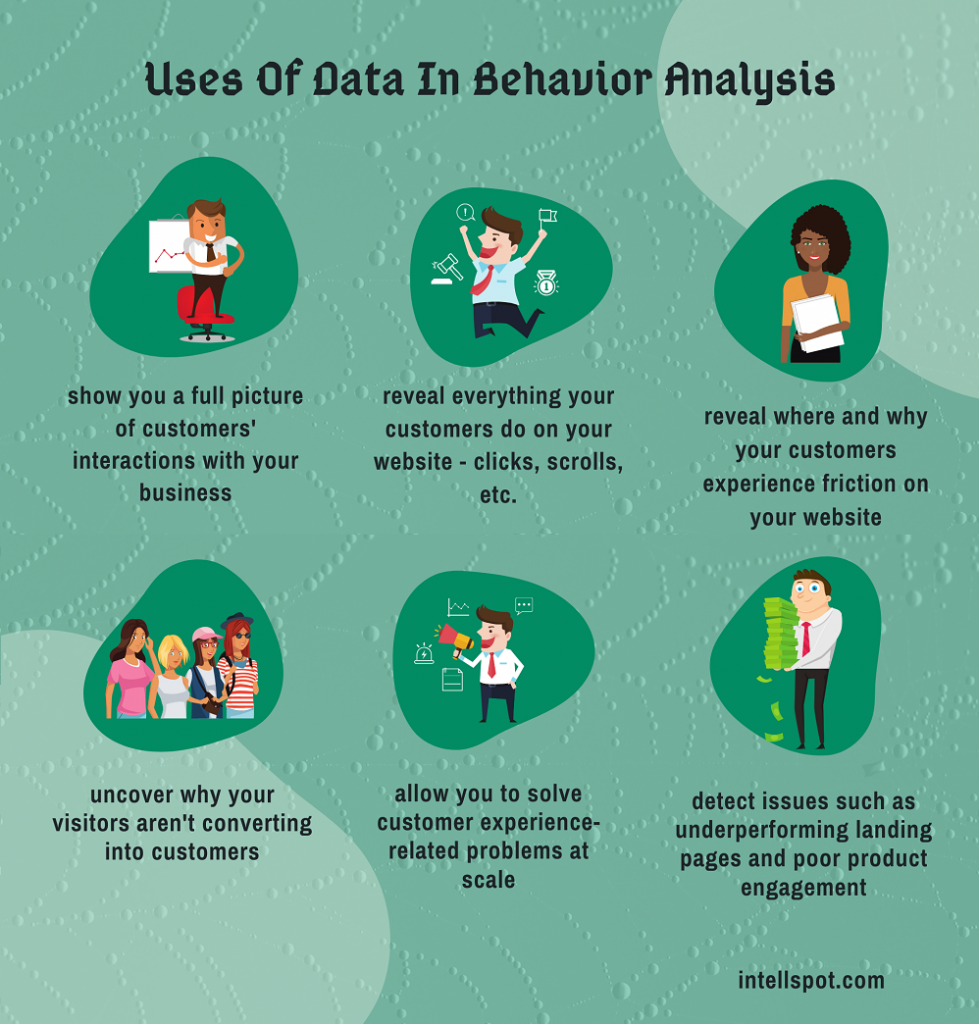
Challenges in Data Analytics for Marketing
While data analytics offers immense potential in marketing, there are also challenges that businesses must overcome to fully leverage its benefits.
Data Privacy and GDPR Compliance
One of the key challenges in data analytics for marketing is ensuring data privacy and compliance with regulations such as the General Data Protection Regulation (GDPR). Marketers must be mindful of collecting and using customer data in a responsible and transparent manner, obtaining proper consent, and protecting sensitive information.
Data Integration and Management
Data integration and management can be a complex task, especially when dealing with data from multiple sources and systems. Marketers must ensure that data is properly aggregated, organized, and accessible for analysis. This requires effective data integration and management strategies, as well as the use of appropriate tools and technologies.
Data Quality and Accuracy
Data quality and accuracy are essential for reliable insights and decision-making. Marketers must ensure that the data used for analysis is accurate, relevant, and up-to-date. This may involve data cleaning and validation processes to eliminate errors, duplicates, and inconsistencies.
Data Security and Cybersecurity
Data security is a critical concern in data analytics for marketing. Marketers must implement robust security measures to protect customer data from unauthorized access, breaches, and cyber threats. This involves using secure data storage and transmission protocols, as well as regularly updating security measures and protocols.
Skill Gap and Talent Acquisition
The field of data analytics requires specialized skills and expertise. Marketers must acquire the necessary talent and resources to effectively collect, analyze, and interpret customer data. Addressing the skill gap may involve collaboration with data scientists, hiring specialized talent, or providing training and development opportunities for existing staff.
Conclusion
Data analytics plays a vital role in marketing by helping businesses understand customer behavior, identify their target audience, improve marketing campaigns, optimize budgets, and enhance the overall customer experience. By leveraging the power of data analytics, marketers can make more informed decisions, drive business growth, and stay ahead of their competitors. The role of data analytics in marketing encompasses various aspects such as customer behavior analysis, identifying the target audience, improving marketing campaigns, optimizing budgets, and enhancing the customer experience. Despite the challenges in data analytics, harnessing its power can unlock valuable insights and drive business success. By embracing data analytics and continuously adapting to the evolving marketing landscape, businesses can unlock new opportunities for growth and innovation.
